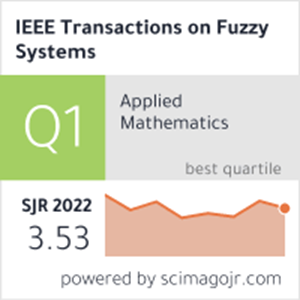Differentially Private Distributed Nash Equilibrium Seeking for Aggregative Games With Linear Convergence
IF 10.7
1区 计算机科学
Q1 COMPUTER SCIENCE, ARTIFICIAL INTELLIGENCE
引用次数: 0
Abstract
The problem of differentially private distributed Nash equilibrium seeking for aggregative games with unknown nonlinear players under unbalanced directed graphs is investigated in this article. We utilize an auxiliary variable to eliminate the influence of the unbalancedness caused by the topological structure. The consensus protocol is employed to estimate the aggregate function. To protect players' sensitive information, Laplace noise is added on shared messages among players to perturb the raw information. By combining with the heavy-ball method, Nesterov gradient descent strategy and the consensus protocol, a momentum-based auxiliary system is designed to generate the Nash equilibrium signals with differential privacy guarantee with the help of the fixed gradient step size. A weakening factor is adopted to ensure the almost sure convergence of the designed auxiliary system in the presence of noise. Then, we analyze the linear convergence of the auxiliary system to the Nash equilibrium by using the linear systems inequalities. The rigorous differential privacy with a finite cumulative privacy budget without requiring a tradeoff between the convergence accuracy and differential privacy is also proven. In addition, an adaptive fuzzy method is used to deal with the unknown nonlinear dynamics, and the controller is designed to drive the actions of the players to the neighborhood of Nash equilibrium with the aid of auxiliary system. Finally, we present a numerical example to present the effectiveness of the proposed algorithm.线性收敛聚集对策的差分私有分布纳什均衡寻求
研究了非平衡有向图下未知非线性参与者聚集对策的差分私有分布纳什均衡问题。我们利用一个辅助变量来消除拓扑结构引起的不平衡的影响。采用共识协议对聚合函数进行估计。为了保护玩家的敏感信息,在玩家之间的共享信息中加入拉普拉斯噪声,对原始信息进行扰动。结合重球法、Nesterov梯度下降策略和共识协议,设计了一种基于动量的辅助系统,利用固定的梯度步长生成具有差分隐私保证的纳什均衡信号。为了保证所设计的辅助系统在噪声存在的情况下几乎一定的收敛性,采用了一种弱化因子。然后,利用线性系统不等式分析了辅助系统对纳什均衡的线性收敛性。在有限的累积隐私预算下,不需要在收敛精度和差分隐私之间进行权衡,证明了严格的差分隐私。此外,采用自适应模糊方法处理未知的非线性动力学,并设计了控制器,借助辅助系统将参与者的动作驱动到纳什均衡的邻域。最后给出了一个数值算例,验证了该算法的有效性。
本文章由计算机程序翻译,如有差异,请以英文原文为准。
求助全文
约1分钟内获得全文
求助全文
来源期刊

IEEE Transactions on Fuzzy Systems
工程技术-工程:电子与电气
CiteScore
20.50
自引率
13.40%
发文量
517
审稿时长
3.0 months
期刊介绍:
The IEEE Transactions on Fuzzy Systems is a scholarly journal that focuses on the theory, design, and application of fuzzy systems. It aims to publish high-quality technical papers that contribute significant technical knowledge and exploratory developments in the field of fuzzy systems. The journal particularly emphasizes engineering systems and scientific applications. In addition to research articles, the Transactions also includes a letters section featuring current information, comments, and rebuttals related to published papers.
 求助内容:
求助内容: 应助结果提醒方式:
应助结果提醒方式:


